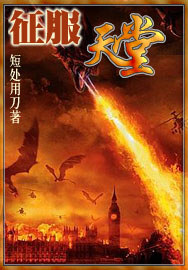英语天堂-第29部分
按键盘上方向键 ← 或 → 可快速上下翻页,按键盘上的 Enter 键可回到本书目录页,按键盘上方向键 ↑ 可回到本页顶部!
————未阅读完?加入书签已便下次继续阅读!
How did it happen? (是怎么回事?)
How did that happen?
你干吗要去做这种事呢?
What are you doing this for? *当不明白对方为什么要做毫无理由的事情的时候使用。
Why are you doing this?
What's the reason you're doing this?
Why are you doing something like this? (你干吗要干这样的事呢?)
你为什么干那样的事呢?
Why did you do that?
Why did you do that? (你为什么干那样的事呢?)
I didn't know I wasn't supposed to。 (我不知道不能这样做。)
What made you do that?
Why did you do something like that?
How could you?
How could you do that?
是什么原因呢?
What causes it? *cause“成为……的原因”、“引起”。
The river is getting dirty。 (那条河越来越脏。)
What causes it? (为什么会这样呢?)
What causes it? (是什么原因?)
Air pollution。 (由于空气污染。)
What is it caused by?
请给我解释一下。
Explain it to me。
You'd better start explaining。
为什么不行?
Why not? *在被对方否定时,反驳对方“为什么不行?”,还含有“当然可以”、“同意”的意思。
You can't wear the red pants。 (你不能穿那条红裤子。)
Why not? They're my favorite。 (为什么不能?这是我最喜欢的裤子。)
Why can't I?
Is there a reason? (有理由吗?)
你怎么那么高兴?
What are you so happy about?
What are you so happy about? (你怎么那么高兴?)
It's a wonderful day。 (今天是最棒的一天。)
You seem especially happy today。 (你今天显得特别高兴。)
What makes you so happy? *更随意的说法。
为了什么?
What for?
I made this big box! (我做了个这么大的箱子。)
What for? (干什么用?)For what?
What is this for? (这个用来干嘛?)
为了谁?
For who?
I bought this gift today。 (今天我买了一份礼物。)
For who? (给谁买的?)
Who is it for?
你旅行的目的是什么?
What's the purpose of your visit? *出境游时,边防检查官的问话。
What brought you here? (你为什么来这儿?)
没有理由不让做吧。
No reason not to。
Why do you want to do that? (你为什么想做那件事?)
No reason not to。 (没有理由不让做吧。)
Why not?
What's wrong with it?
Why shouldn't I?
你怎么在这儿?
Why are you here? *根据说话方式的不同,有时会让对方听起来不礼貌。
我告诉你为什么……
I'll tell you why。。。
This is the reason why。。。
总之,是这么回事儿。
In brief; it's like this。 *比较随便的说法,用在说出重点之前。虽然不是正式的说法,但可用于所有情况。
In short; it's like this。
In a word; it's like this。
To sum up; it's like this。
它的由来是这样的……
It started like this。。。
How did Edison make the light bulb? (爱迪生是怎样发明灯泡的呢?)
It started like this。。。 (它的由来是这样的……)
This is its history。。。
This is the way it began。。。
原来如此!
That's why! *比较随便的说法。
Why doesn't it work? (为什么不动呢?)
You have to turn it on first。 (你得先打开开关。)
Oh; that's why! (哦,是这样啊!)
所以……
That's why。。。
That's why I like her。 (所以我喜欢她。)
I see。 (我明白了。)
●指出错误
我觉得你错了。
I think you're mistaken。
I think you've been misled。
你错了。
You're wrong。
That man is Mr。 Smith。 (那位是史密斯先生。)
You're wrong。 He's Mr。 Sheehan。 (你错了,他是希恩先生。)
You're incorrect。
那是谁的错呀?
Whose fault is that? *含有责备对方的语感。
Whose fault is it?
Who's to blame?
吃不着葡萄就说葡萄是酸的(还嘴硬!)
I think it's sour grapes。 *sour grapes是意为“酸葡萄”、“不认输”的惯用表达方式。它来自有名的伊索寓言。“狐狸看到树上长满了诱人的葡萄,可是怎么也够不着时,就说那葡萄是酸的,算了吧。”狐狸嘴硬,但却不得不死心。
I think it's a case of sour grapes。
那随你的便。
That's up to you。 *up to。。。 表示“随……的便”、“由……决定”。
Should I buy a red car or a blue car? (我是买红色的汽车还是买蓝的?)
That's up to you。 (那就随便你喽。)
You choose。
You decide。
你没说到点儿上。
That's not the point。
He's poor because he's lazy。 (他很穷是因为他很懒。)
That's not the point。 (你没说到点儿上。)
That's not the issue。
That's not what I'm talking about。
对不起,那是我的。
Excuse me。 That's mine。 *当发现别人错拿走什么东西时使用。
That doesn't belong to you。 (那不是你的。)
Excuse me; that's not yours。 (对不起,那不是你的。)
I think that belongs to me。 (我想那是我的。)
据说这些是美国人日常生活的五星句子
熟练地运用英语的一个重要方面就是学习并掌握英语本族者常用的生动、活泼的习语。
1。 After you。你先请。这是一句很常用的客套话,在进/出门;上车得场合你都可以表现一下。
2。 I just couldn't help it。我就是忍不住。想想看,这样一个漂亮的句子可用于多少个场合?下面是随意举的一个例子:
I was deeply moved by the film and I cried and cried。 I just couldn't help it。
3。 Don't take it to heart。 别往心里去,别为此而忧虑伤神。生活实例:
This test isn't that important。 Don't take it to heart。
4。 We'd better be off。我们该走了。It's getting late。 We'd better be off 。
5。 Let's face it。 面对现实吧。常表明说话人不愿意逃避困难的现状。
参考例句:I know it's a difficult situation。 Let's face it; OK?
6。 Let's get started。咱们开始干吧。劝导别人时说:Don't just talk。 Let's get started。
7。 I'm really dead。我真要累死了。坦诚自己的感受时说:After all that work; I’m really dead。
8。 I've done my best。我已尽力了。
9。 Is that so?真是那样吗?常用在一个人听了一件事后表示惊讶、怀疑。
10。 Don't play games with me!别跟我耍花招!
11。 I don't know for sure。我不确切知道。
Stranger: Could you tell me how to get to the town hall?
Tom: I don't know for sure。 Maybe you could ask the policeman over there。
12。 I'm not going to kid you。我不是跟你开玩笑的。
Karin: You quit the job? You are kidding。
Jack: I'm not going to kid you。 I'm serious。
13。 That's something。 太好了,太棒了。
A: I'm granted a full scholarship for this semester。
B: Congratulations。 That's something。
14。 Brilliant idea!这主意真棒!这主意真高明!
15。 Do you really mean it? 此话当真?
Michael:Whenever you are short of money; just come to me。
David: Do you really mean it?
16。 You are a great help。你帮了大忙
17。 I couldn't be more sure。 我再也肯定不过。
18。 I am behind you。我支持你。
A: Whatever decision you're going to make; I am behind you。
19。 I'm broke。我身无分文。
20。 Mind you!请注意!听着!(也可仅用Mind。)
模范例句:Mind you! He's a very nice fellow though bad…tempered。
21。 You can count on it。你尽管相信好了,尽管放心。
A:Do you think he will come to my birthday party?
B: You can count on it。
22。 I never liked it anyway。我一直不太喜欢这东西。当朋友或同事不小心摔坏你的东西时就可以用上这句话给他一个台阶,打破尴尬局面:Oh; don't worry。 I'm thinking of buying a new one。 I never liked it anyway。
23。 That depends。看情况再说。
例:I may go to the airport to meet her。 But that depends。
24。 Congratulations。恭喜你,祝贺你。
25。 Thanks anyway。无论如何我还是得谢谢你。当别人尽力要帮助你却没帮成时,你就可以用这个短语表示谢意。
26。 It's a deal。一言为定
Harry: Haven't seen you for ages。 Let's have a get…together next week。
Jenny: It's a deal
Harriet Beecher Stowe
Works
Uncle Tom's Cabin
Biography
Mrs。 Harriet Beecher Stowe was the daughter of a famous American divine; Dr。 Lyman Beecher; and born of good New England stock; at Litchfield; Conn。; on June 14; 1812。
James Russell Lowell; speaking of another of her stories; The Minister’s Wooing; said that no writer of her time had “by birth; breeding; and natural capacity;” the opportunity to know New England so well as she did。 This is important; because it was distinctly the moral impulse generated in New England that set going the slave’s liberation movement; of which the most powerful tract was a novel; and that novel Uncle Tom’s Cabin。
Her father’s preaching; and his prayers for the slaves; had a determining influence over Mrs。 Stowe as a girl; and then; in 1832; the family moved south to Cincinnati; Ohio; where she was within easy reach of the slave states; and gained her intimate knowledge of the life she was to describe。 She married there Professor Stowe; of Lane College; in 1836—an eventful year; when his house was often in danger from its association with the “underground railway” that helped the slaves to escape north。 A few years later her husband had become professor at Andover; Mass。; and the slave movement had reached a further crisis; when she began the story that was to move every country in Europe and give her international and world…wide fame。
The following summary by Nassau W。 Senior sketches its contemporary effect:— “Uncle Tom’s Cabin came out as a sort of feuilleton in the National Era; a Washington paper。 The death of Uncle Tom was the first portion published; indeed the first that was written。 It appeared in the summer of 1851; and excited so much attention that Mrs。 Stowe added a biginning and middle to her end; by composing and printing from week to week the story as we now have it; until it was concluded in March 1852。 It was soon after reprinted at Boston in two volumes。 By the end of November 1852; 150;000 copies had been sold in America。 The first London edition was published in May 1852; and was not large; for the European popularity of a picture of negro life was doubted。 But in the following September; the London publishers furnished to one house ten thousand copies per day for some four weeks。 We cannot follow it beyond 1852; but at that time more than a million of copies had been sold in England; probably ten times as many as have been sold of any other work; except the Bible and Prayer…book。”
As for France; Uncle Tom fairly covered for a time the shop…windows of the boulevards; and one publisher alone; Eustace Barba; sent out five editions in different forms。 Before the end of 1852; indeed; the story had been translated; to e Senior again; into “Italian; Spanish; Danish; Swedish; Dutch; Flemish; German; Polish; and Magyar。 There were two Dutch translations and twelve German ones; and the Italian translation enjoyed the honour of the Pope’s prohibition。 It had been dramatised; too; in twenty different forms; and acted in every capital in Europe; and in the free States of America。” We might add also to Senior’s strictly contemporary list—Welsh; Armenian; Illyrian; Finnish; modern Greek; and Portuguese versions。 George Sand contributed an appreciation to one of the French versions; in which she said Mrs。 Stowe had “genius; not literary; but as humanity needed it— the genius of goodness。”
Mrs。 Stowe died on July 1; 1896; at Hartford; Conn。
Chapter 1
In Which the Reader Is Introduced to a Man of Humanity
Late in the after





